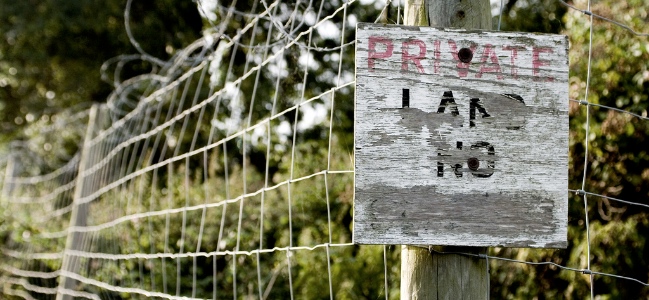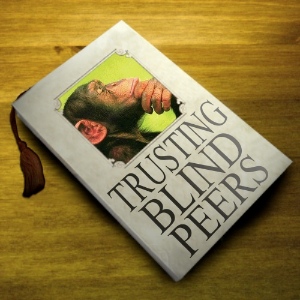Why we need open, distributed social networks.

An article by Michael Erard has been doing the rounds recently. Entitled What I Didn’t Write About When I Wrote About Quitting Facebook, it simultaneously pokes fun at the growing genre of ‘social media exile essay’ whilst raising an interesting issue about the ways in which social networks mediate relationships. Erard concludes (my emphasis):
In the standard Social Media Exile essay, one doesn’t mention or announce when one returns to blogging or Twitter. For each platform or network one leaves, there’s another one to return to. Sometimes they’re the same. So I’m going to close this piece by breaking that convention and mentioning how easy it turns out to be to reactivate Facebook. When you sign back in, all your stuff is there, as if you’d never left. It’s like coming back to your country after a month in a foreign land, and it makes one feel that the whole reason for leaving is to make the place seem strange again. Being away from Facebook was certainly that. But I had to come back. That’s where all the people are. I’ve got a book coming out, and I need to let my friends know. Anyway, you know where to find me and what to talk about when you do. I’ll have some cookies baked.
Let’s cut to the chase: for better or worse, online, we currently act like brands. We can (and do) consider things like using a standardised avatar to increase recognition; we’re careful about what we say in certain kinds of company; we align ourselves with other brands (people, organizations, objects) to gain social capital. The trouble is that, in a similar way to a mall, we’re setting up shop on private property. We can be (and sometimes are) kicked out of spaces for violating lengthy, arcane user agreements written in legalese that few of us take the time to read. On various levels we control our digital identity, sometimes by self-censoring. This is problematic.
Some of us can play the game; Twitter and my online networks and reputation certainly helped me gain my last two jobs. But playing this game can be tiring. Each medium has its own vocabulary and syntax that one has to learn, as Erard demonstrates:
Instead of writing about any of this, once I was not on Facebook anymore, I found myself sending emails with some witty insights or photos of my baby, but it just wasn’t the same; a request for housing help for a friend via email got no responses.
Despite my impending Black Ops period, I’m actually not of the opinion that everything would just be alright if we all just got offline and talked to one another face-to-face. I remember reading recently that talking about the superficiality of social media is more than slightly disingenuous given the type of weather-related chat and insincere ‘how are you?’ questions that make up much of our offline interaction. There was no golden period of offline communication. Updating your Facebook status probably not time you would have otherwise spent in deep philosophical face-to-face conversation with your next-door neighbour.
But, nevertheless, there is a problem with online communication. Superficial conversations are (usually) neither recorded nor commodified in the ways they can be online. Erard again:
I hadn’t written about feeling like Facebook was a job. Like I was running on a digital hamster wheel. But a wheel that someone else has rigged up. And a wheel that’s actually a turbine that’s generating electricity for somebody else. That’s how I felt, which is what I should have written.
What we’re doing, in effect, is akin to renting houses when we should be buying them. The tools that commercial operations such Facebook, Twitter and Google+ give us are ‘free’ so we often don’t think through the issues clearly. Like a low-income people forced into dealing with a disreputable car dealers, we’re forced into hire-purchase with no real prospect of ownership.
Let’s run a quick thought experiment. Imagine Facebook started charging and, instead of a mass exodus, people (for whatever reason) kept using it. What would change? I think, for one, we’d question where our data was going and we’d want to get rid of the advertising. It’s been repeated so many times that it’s almost become a cliché, but if we’re not paying for something then we’re not customers. And if we’re not customers, we bring something to the marketplace that’s being sold on our behalf. We’re being tracked, packaged-up and sold to the highest bidder.
All this sounds alarmist, and it is, but all I’m trying to do is lift the veil a little. Discontent leads to a search for alternatives, so I suppose I’m trying to stoke the fires of discontent. We’re all in the same position: we need open, distributed social networks to avoid the above. But we’re in a Catch-22: no-one wants to make the first move to Identi.ca or Diaspora because it’s not social until all your friends are there, right?
Image CC-BY-NC-SA [ jon ]

 Although I’m still yet to have an academic article published, I’ve made a public commitment to do so only in open-access journals. I’ve already dedicated this blog to the public domain (see CC0 license in footer) and shared my thesis online. Whilst for me it’s a logical continuation of my position as an open educator/academic/researcher/individual, I’ve been waiting for a compelling reason for others to ditch closed journals.
Although I’m still yet to have an academic article published, I’ve made a public commitment to do so only in open-access journals. I’ve already dedicated this blog to the public domain (see CC0 license in footer) and shared my thesis online. Whilst for me it’s a logical continuation of my position as an open educator/academic/researcher/individual, I’ve been waiting for a compelling reason for others to ditch closed journals.